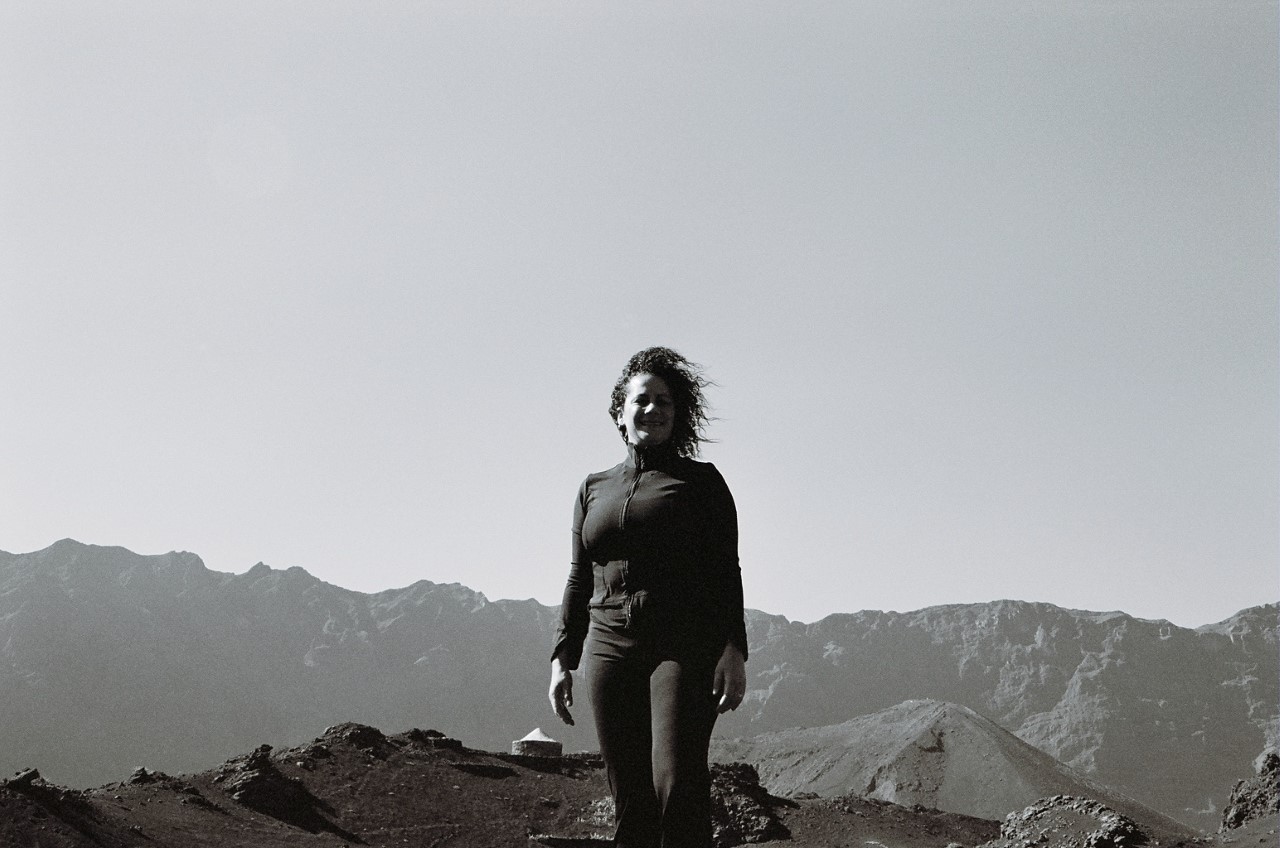Professor St. Onge Shares Thoughts on Psychology, Social Work
by Tribekah Jordan
Professor Krystin St. Onge has been active in the field of psychology for many years. She has had a series of different jobs within social work, such as direct-care work involving both doctors and incarcerated patients. She says one of her goals in teaching general psychology courses at 4C’s is to find students and people who are committed to the work the same way she has been. An example of her commitment is the space she created in the health field for herself while being a female BIPOC (Black, Indigenous and People of Color). In a recent interview she discussed the obstacles and advantages of becoming a professor, among other things.
Q: Were there obstacles in becoming a professor?
A: Not obstacles in becoming a professor. There were obstacles in my identity and seeing myself as one that would transfer information. So, I didn’t see the value in my years of human-services work that would be beneficial to other professionals. It wasn’t until I had a clinical supervisor who really wanted to nurture and support me. They saw the value I did not see, and I wanted to move from agency work and direct care work into training people who were going to be in the field. …The human services and social work field has professionalized. It’s less about people with big hearts and commitment. I wanted to see that people were trained because I found that working in historically minoritized communities (they) didn’t necessarily have quality services and or providers that necessarily looked like them, sounded like them, and truly understood the nuances of the social issues that impacted them directly. …They were further removed. So, I wanted to train those who were committed but also find a way to lift and support others and (help them see) that they, too, should be rolling their sleeves up and working in the field.
Q: Were there advantages in becoming a professor?
A: I call that my fringe benefit. To inspire and support those in seeing the things that I see, in themselves, to encourage them. Advantages? ... I think the advantages are, well, I do believe in the power of education and research and that it is important. I also, feel that we, meaning, BIPOC professionals should be a part of the research process, not being kind of seen and observed by others, being part of creating that narrative.
Q: Have you noticed having an impact?
A: The gift for me is those who’ve moved on, whether they earned a certificate and they’re making impact in their communities and also those who’ve … started off with their GED and maybe taking a couple of courses and, next thing you know, years later, they’re calling me back staying in touch with me letting me know they’ve pursued new areas of study. So, it’s not necessarily about those that have got their PhDs or their master’s; it’s about people finding their value, their worth, their commitment to working with others and being fed by doing. … Often I meet the students that want to be part of social change. I think it’s nice when they can see their impact. So, I would say that for me that’s the joy. A major takeaway for me. That’s an advantage. That’s what keeps me here.
Q: Do you have any advice for students that want to pursue that path of psychology/work?
A: Know oneself. Know that we’re always going to be growing and evolving. So, we have to know before we get into the field the parts of self that make us uncomfortable. That’s not a failure. That’s an opportunity to develop and to learn. Be open to opportunities to work with diverse groups. I’ve always been pleasantly surprised when I believed that I was clear on who I wanted to work with and when I was challenged to do something different, even though I may have been initially resistant. I found that when I opened myself up to transferring the knowledge that I had just within a different community, that it was rewarding, and the work was richer. So, when there are opportunities to learn take advantage of them. I’m a big supporter of experiential learning so volunteering and seeing how other organizations or symptoms operate is telling. ... Because I learn best that way, I used to travel around the nation and visit other organizations and ask them, “Show me how you do what you do,” and by seeing and listening, I could then duplicate, take the best of the practices and implement them on Cape. Like, going out to New York City or going to LA and seeing how and why they’ve developed the interventions. Because the common denominator often is the human experience. Urban environment is different, but we definitely have inner-city issues here on Cape Cod and not the infrastructure to support them.
Q: What is the most valuable component of teaching?
A: I’d have to say connection. Content is important. I want students to be able to connect to the material in their real time and how it is they’re experiencing life. I think that’s the most powerful and impactful. Not everyone’s going to want to leave Psych 101 as a helper or (be) curious about the occipital lobe, and that’s OK. … I want people, students that are in my classroom, to push their learning edge. Challenge their own beliefs and open themselves up. Be willing to hear something different. ‘What happens when we feel something uncomfortable.’ So, those experiences I feel are so much more valuable to the development of an individual.
 Krystin St.Onge during a visit to Cabo Verde, West Africa. (Aidan Q. Washington)
Krystin St.Onge during a visit to Cabo Verde, West Africa. (Aidan Q. Washington)
Categories: Featured, Professors